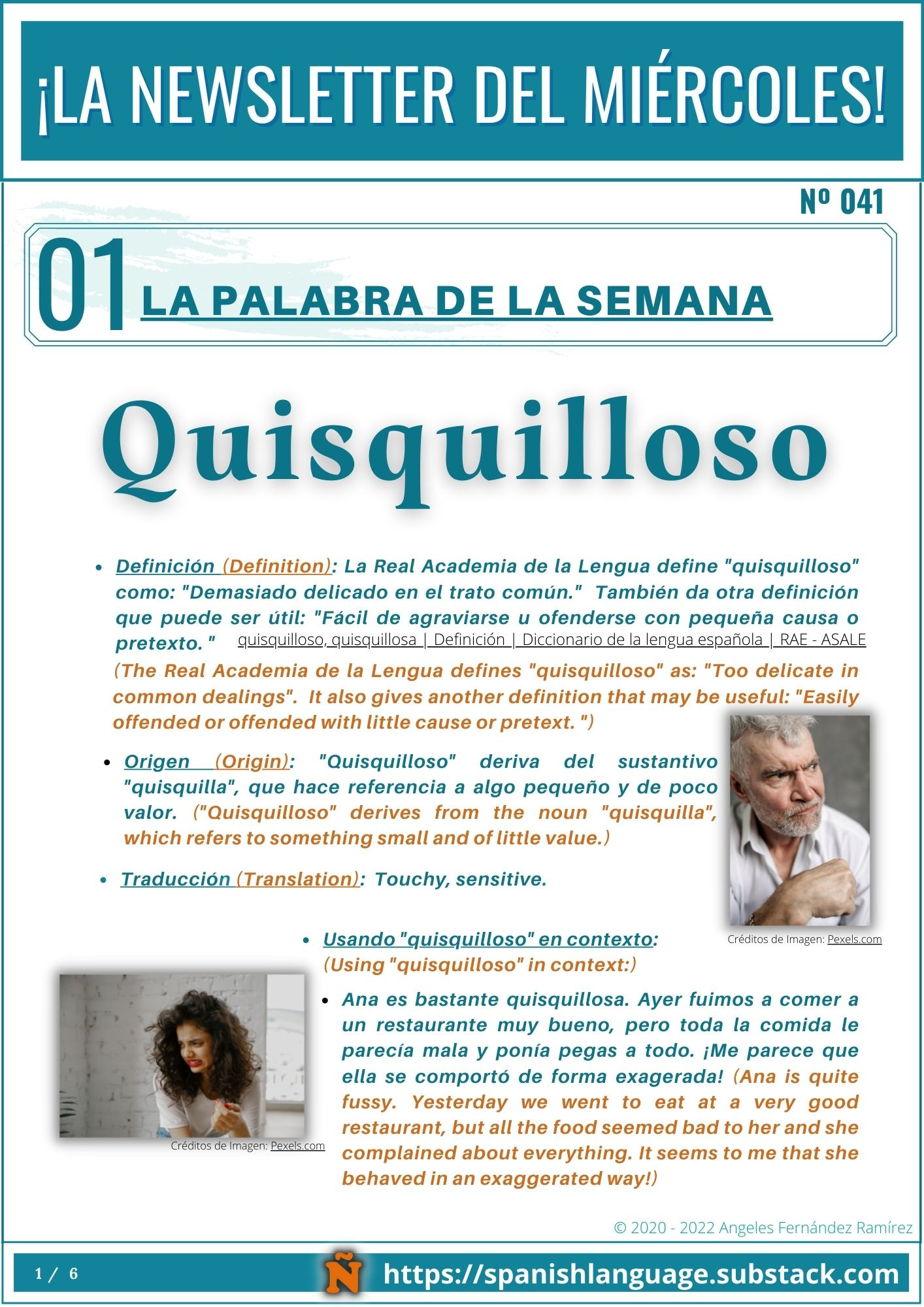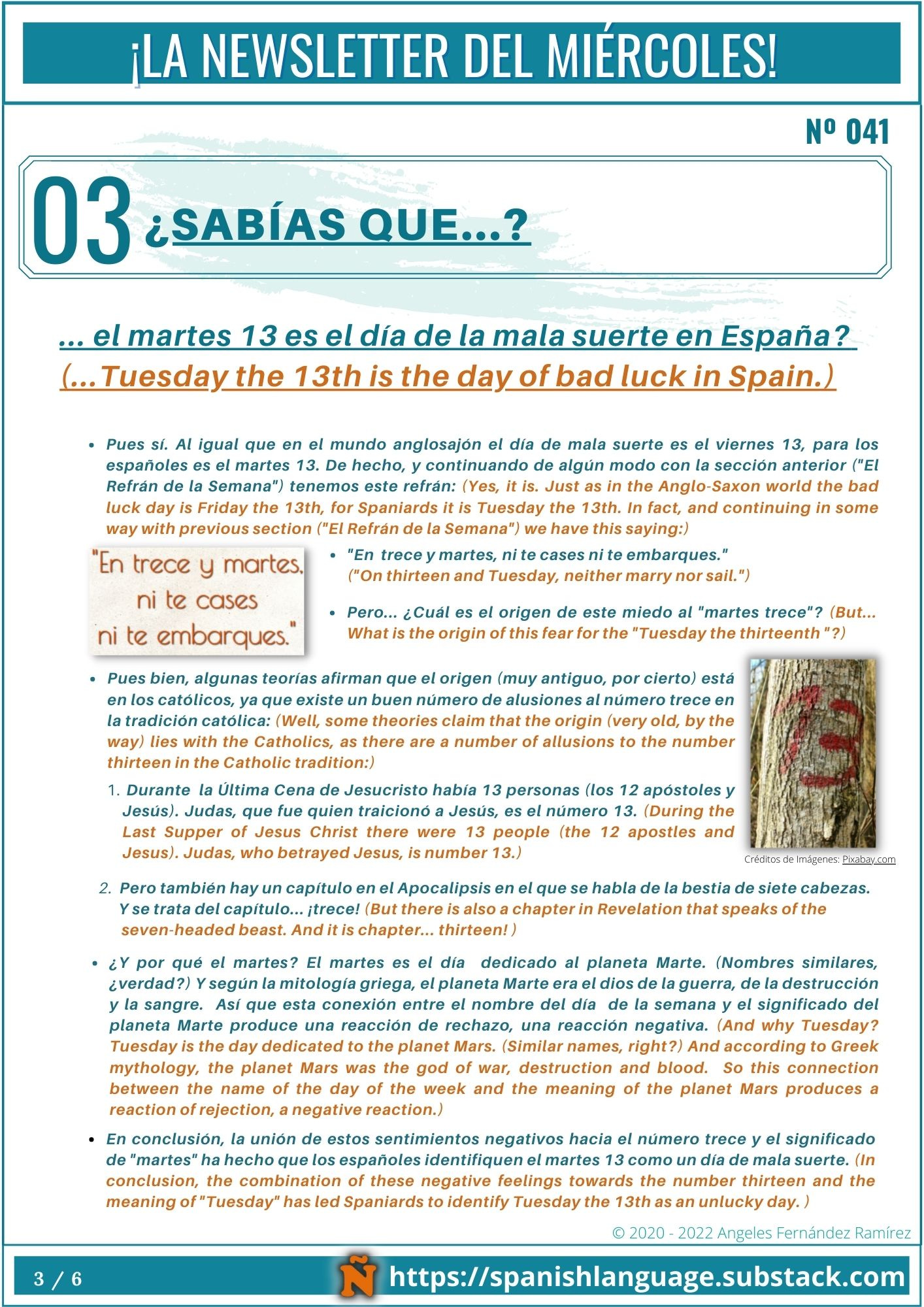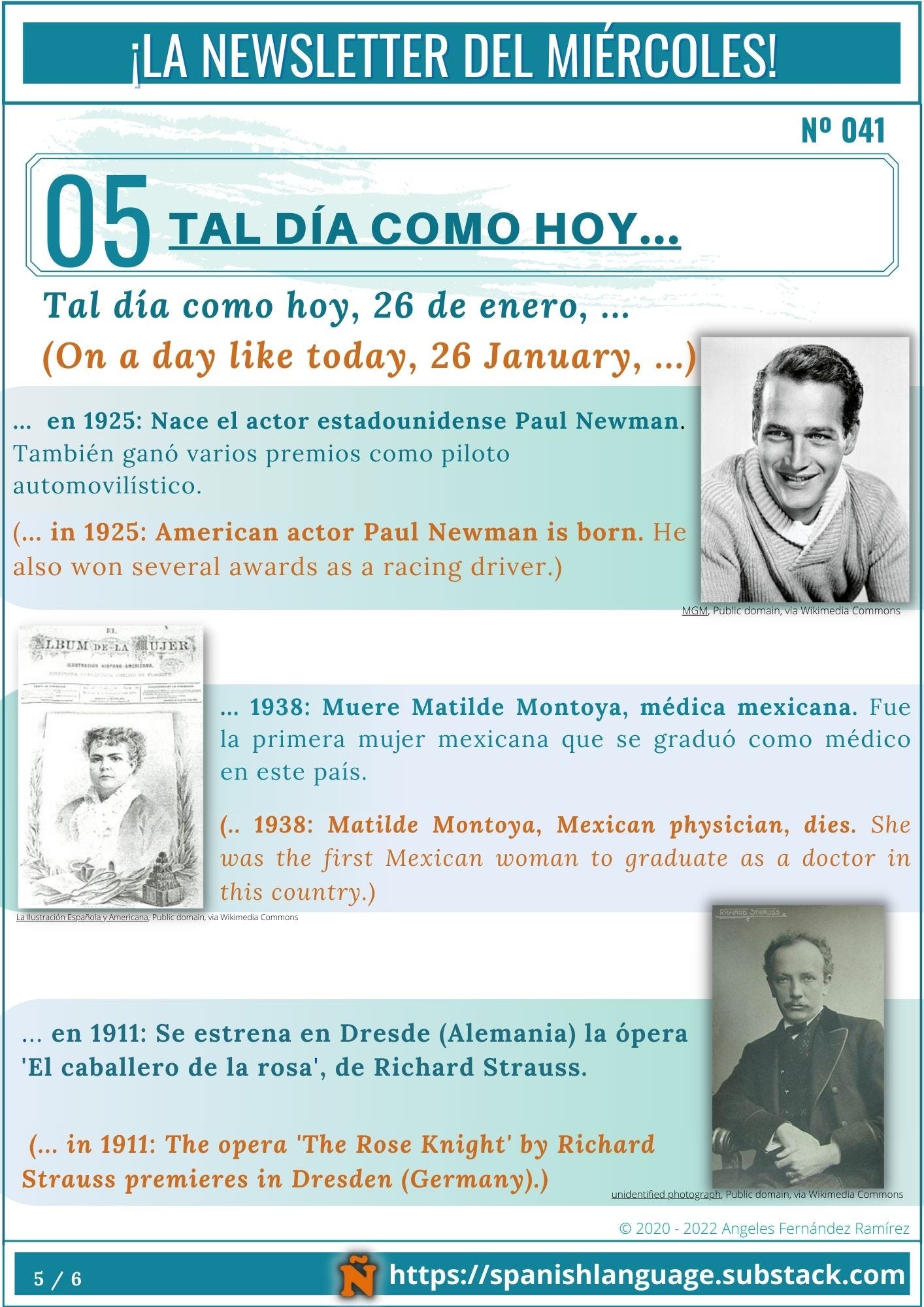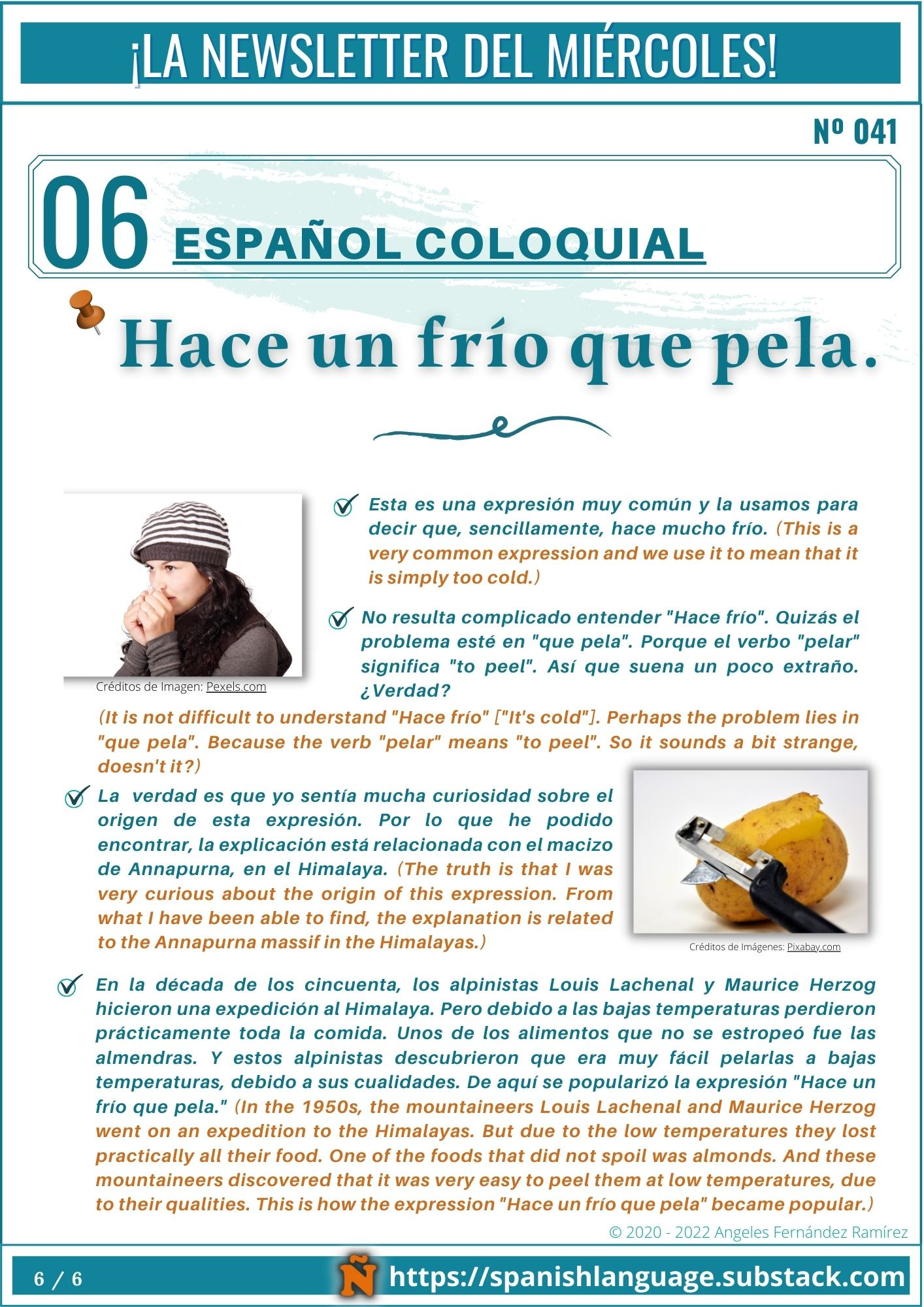You’re reading the free edition of Spanish Language and Spain Culture, a newsletter by Ángeles Fernández, which you can read about here.
Here you can find free information but... if one day you change your mind and decide to support my work... that would be great!
If you value my work and find it useful, please consider subscribing.
¡Hoy es miércoles! (Today is Wednesday! )
Aquí tienes una nueva edición semanal. ¡Espero que te guste!
(Here's a new weekly edition, hope you like it!)
You can download this week’s free .pdf document here:
©Ángeles Fernández (2020-2022) (https://spanishlanguage.substack.com)
You can also read:
Or follow me on:
Interested in Online Spanish lessons?
Or maybe… Interested in learning at your own pace with Yabla?














Hola Angeles! muchas gracias una vez mas! Aqui estan mis preguntas!
1) a todo = about everything (but would the direct translation be "to all") - I just want to figure out the use of the preposition 'a' (also I thought sobre is 'about')
2)que te parecio (translation: "what did you think") but I am still confusing this with the verb creer.
Por ejemplo: later in your newsletter (Section 2)
"no crees? " (translation: "don't you think") so, how can I tell the difference between parecer y creer? and why did you use creer in the second sentence and not the first time?
3) In the role play: manuel says " ..pero ...pero necesitaba" (why is the imperfect tense used here (xxxxaba) and not preterite?) as it is past - is it because it is a story?
pero!! (later in the sentence) I read " ERA necesario" (not estaba), porque?
Is it true to say that the second verb will be the past past and the first verb is more recent past (imperfect)
4) CUAL and QUE FOR (=WHAT) When to use each one?! Does it depend on the noun afterwards (que and cual can both mean " what" so I am a bit confused here..
5) section 3, states : "ya que existe" (what is "ya" in this sentence)
6) y segun = according to?
7) hacia el numero (the translation states "towards to" ) (but "el" here is an article right? not the word 'to'
8) "hicieron una expedicion" (I thought "hiecieron" is from "hacer" meaning (do/,make)?) but the translation says 'went'? (but in Spanish the meaning is more like to 'do an expedition' so should the translation be 'do' and not 'went' ) I want to check so I do not form a wrong assumption with the grammar...
9) la comida ( but the translation states "their food") but here "la" is just an article meaning 'the' food? and not 'their' (pronoun)
10) due to = debido a ? but in google translate if I want to say 'due to this situation I can't buy a house' the translation uses a different structure: "por esta" situacion - what is the difference?
Muchas gracias Angeles!